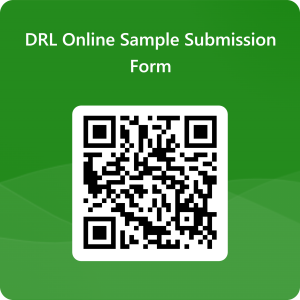As a passionate agri-business, DRL is highly motivated to deliver a premium and cost-effective diagnostic package to our clients and to give farmers the most useful information for the least cost.
Download the DRL Submission Form which you can print and complete. Or use our Online Booking Form from this link: Online Booking Form
Please include a print-out with the courier pack of your samples for faster processing. Also email your submission form to our Booking Email to book your sample testing in. Email booking@drl.net.nz
Sample Collection Information
Please contact the lab if you need assistance sourcing any sample supplies 03 489 4832 or drl@drl.net.nz
Serum Samples:
- Blood (red or purple top tubes; min. 3ml). Sample should reach the bottom of the blood tube label.
- Clearly write, or print, the animal ID on (or over) the label on the blood tube.
- While refrigeration is desirable it is not essential; please protect samples from extremes of heat or cold.
- Do not freeze.
Milk Samples:
- Please use screw top plastic containers for milk samples. Min. 3ml per sample.
- Clearly write, or print, the animal ID on (or over) the label on the container.
- Please keep refrigerated and pack with ice packs in a chilly bin.
Individual Faecal PCR:
- Please use screw-top plastic containers for dung.
- Use a fresh glove to collect each sample and avoid cross contamination of samples.
- Min. 3g per sample, ideally 5-10g (1 tablespoon approx.)
- Clearly write, or print, the animal ID on (or over) the label on the container.
Pooled Faecal PCR: (Pools of 10)
- If sample pooling is requested, send individual samples as we will carry out the pooling here, that way we can easily retest individual samples from positive pools as required.
- If a pool is positive, we will contact you concerning your preference for individual sample re-testing.
- Please use plastic screw-top containers for dung. Use a fresh glove to collect each sample and avoid any cross contamination of samples.
- Use a fresh glove to collect each sample and avoid cross contamination of samples.
- Dung samples freshly deposited on the ground are acceptable as long they can be unambiguously linked to their originator and land on an otherwise clean surface.
- Clearly write, or print, the sample ID on (or over) the label on the container.
*Special pricing is available for custom diagnostic programmes, please call the lab 03 489 4832 to discuss or Simon on 021 249 7710.
